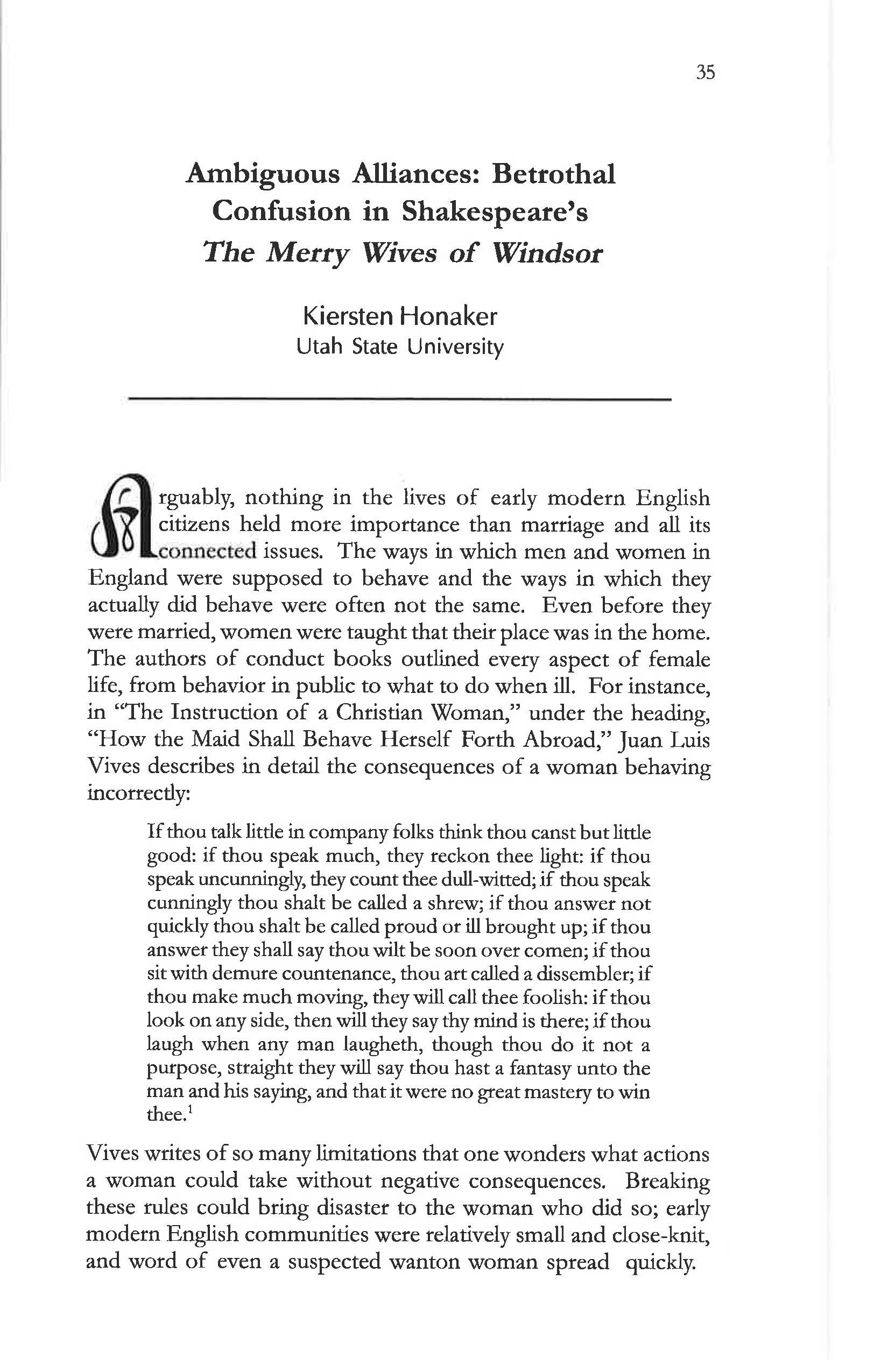Ambiguous Alliances: Betrothal Confusion in Shakespeare's The Merry Wives of Windsor
Main Article Content
Abstract
Arguably, nothing in the lives of early modern English citizens held more importance than marriage and all its connected issues. The way in which men and women in England were supposed to behave and the ways in which they actually did behave were often not the same. Even before they were married, women were taught that their place was in the home. The authors of conduct books outlined every aspect of female life, from behavior in public to what to do when ill. For instance, in “The Instruction of a Christian Woman,” under the heading, “How the Maid Shall Behave Herself Forth Abroad,” Juan Luis Vives describes in detail the consequences of a woman behaving incorrectly:
If thou talk little in company folks think thou canst but little good: if thou speak much, they reckon thee light: if thou speak cunning thou shalt be called a shrew; if thou answer not quickly thou shalt be called proud or ill brought up; if thou answer they shall say thou wilt be soon over comen; if thou sit with demure countenance, thou art called a dissembler; if thou make much moving, they will call thee foolish: if thou look on any side, then will they say thy mind is there; if thou laugh when any man laugheth, though thou do it not a purpose, straight they will say thou hast a fantasy unto the man and his saying, and that it were no great mastery to win thee.1
